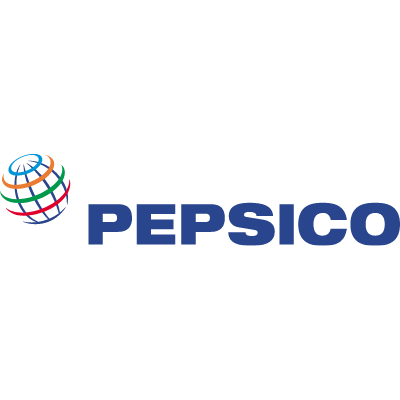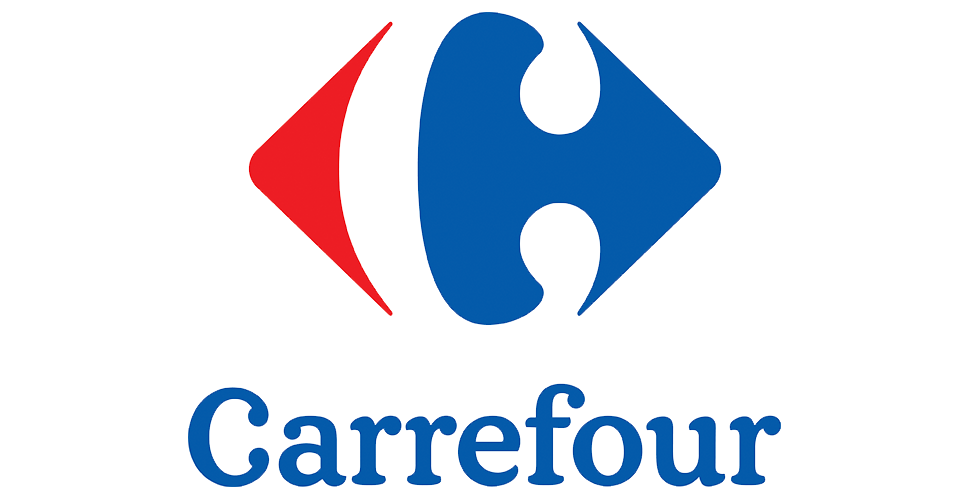We have already discussed the main trends in B2B e-commerce in a previous blog post. In this article, we will look at the specifics and benefits of e-commerce personalization strategies in B2B e-commerce.
From B2C to B2B: consumerization of B2B e-commerce
Consumerization of B2B e-commerce is a trend among B2B companies, which increasingly use digital technology to provide their business customers with the same level of convenience and immediacy in their transactions as they experience in their personal lives. This has led to a dramatic surge in the B2B eCommerce market, which is commonly cited as growing at over twice the rate of its B2C counterpart. According to Forbes Finance Council, the value of B2B eCommerce transactions in the USA alone is expected to reach $1.8 trillion in 2023. Forbes also notes that the allure of eCommerce has encouraged 9 out of 10 suppliers in the B2B space to adopt e-commerce solutions and, since embracing eCommerce, these suppliers have seen their revenues increase by almost half. A few key factors can be identified that have contributed to this transformation:
The COVID-19 pandemic
The COVID-19 pandemic triggered a substantial uptick in the use of e-commerce across various industries. During the pandemic, disruptions in supply chains, logistical challenges, and sluggish cash flows posed a significant threat to the financial health of both buyers and suppliers, so e-commerce emerged as a lifeline to help customers in the B2B space embrace consumer-like digital experiences and e-commerce became the bridge to reach and serve customers remotely while in-person meetings were impossible.
That is not to say that traditional B2B practices such as in-person meetings and handshake deals have been made irrelevant; however, e-commerce has redefined the landscape by enabling buyers to swiftly and effortlessly place repeat orders with a simple click, streamlining the buying cycle and automating future transactions. Even as the COVID-19 crisis has receded and some organizations have returned to physical offices, all indications suggest that e-commerce will continue to solidify its position as the preferred sales channel for suppliers and their clients.
The e-commerce effect
B2B buyers’ priorities have evolved significantly. Personal relationships that once drove B2B sales have yielded precedence to factors like shipping speed, product availability, and pricing. These elements have become pivotal when selecting a supplier, mirroring what is expected of the customer centric B2C realm. Consequently, the importance of B2B eCommerce has surged, as buyers now expect a user experience akin to what they encounter in their personal shopping experience. Thus, applying the e-commerce best practices known from B2C (such as e-commerce personalization) can also be beneficial in the B2B space.
A new generation of B2B buyers
The advent of millennials as key decision-makers within the B2B sector is ushering in a new era for B2B sales. The digital natives from the younger generations nurture relationships with suppliers primarily online and place immense importance on the supplier’s eCommerce shopping experience (including personalization strategies, real-time information, personalized product purchase history, and a well-designed e-commerce site). According to Forbes, 60% of B2B buyers consider the supplier’s eCommerce site as “very important” to their relationship, while two-thirds are willing to switch to vendors offering a more consumer-oriented and personalized user experience. These statistics underscore the surging demand for B2B eCommerce but also the importance of consumerization in B2B e-commerce.
Read more on e-commerce development:
5 B2B e-commerce trends to watch in 2023 and beyond
E-commerce best practices to increase sales and stay ahead of the competition
Why build a custom e-commerce platform for B2B clients in the manufacturing industry?
Headless CMS vs. traditional CMS—comparison
A new frontier of e-commerce: digital healthcare platforms
What is a D2C business model and why apply it to your business
The importance of customer data in B2B e-commerce personalization
Data is essential for B2B eCommerce development because it helps businesses understand their customers, optimize their operations, and improve their decision-making. Data can be collected from various sources such as web analytics, customer feedback (measuring customer satisfaction), social media, and purchase history records. By analyzing and interpreting sales and customer data, businesses can gain insights into customer engagement, behavior, preferences, and needs.
Data can also help e-commerce businesses streamline their processes, improve the customer journey, ordering process, and shopping experience, boost sales, improve the e-commerce website, boost conversion rates, and increase brand loyalty.
Data can also support businesses in making strategic choices and creating effective marketing campaigns. Data-driven B2B eCommerce development can lead to increased customer loyalty, retention, and revenue.
Last, but not least, customer data such as personal data, browsing behavior, customer’s interests, and previous purchases, are crucial for an effective B2B eCommerce personalization strategy. As a matter of fact, according to a study by Seismic and Demand Metric, half of all queried businesses named lack of appropriate data as the reason for not offering personalized experiences.
What to personalize?
If data-driven personalization is so important, what e-commerce personalization efforts can be leveraged to provide loyal customers with an enhanced customer experience in the B2B space? Personalization tactics go beyond making a few recommendations based on the average order for a given demographic or remarketing the same items to a customer. Furthermore, some practices are of particular interest in the space of B2B e-commerce personalization tactics.
The range of personalization tactics used in B2B e-commerce includes tailoring the product catalog to individual customers, offering personalized pricing, streamlining the order process to meet the unique needs of B2B buyers, and enabling the creation of wish lists for repetitive purchases. Additionally, providing personalized content, optimizing landing pages, and tracking user behavior are essential aspects of effective personalization in B2B e-commerce.
#1 Product catalogue
The first of the interesting B2B eCommerce personalization strategies is providing a personalized product catalog. B2B companies often offer their customers different product ranges, depending on the sector they come from. Suppliers may have complementary product catalogs or even create individual product ranges for specific manufacturers. This must be reflected in the online shop or procurement solution. According to the 2023 Adobe B2B Commerce Growth Strategies Survey, two-thirds of B2B sellers believe that personalized product recommendations are a successful strategy for increasing conversion rates.
#2 Pricing
In B2B, prices are often unique to each customer and can be negotiated between suppliers and buyers. This practice must also transfer to B2B e-commerce sales and be one of the aspects of the e-commerce personalization strategy. According to the aforementioned Adobe report, 2 out of 5 surveyed B2B sellers stated that customer-specific pricing or customer price books are successful personalization strategies in B2B e-commerce, giving them a competitive advantage. Importantly, the same report notes that these personalization strategies are more effective for larger companies, with annual revenues above $500 million.
Personalized prices must be saved in e-commerce sites for repeat purchases, as part of personalization efforts, along with conditions such as price scales and discounts, especially for configurable products. Obviously, prices would often have to be negotiated beforehand, but afterward, it must be possible for price requests and offers to be sent and accepted via e-commerce channels, as part of the personalized customer experience of B2B e-commerce.
#3 Order process
The purchasing experience known from online retailers, consisting of going to the product page, putting relevant products in the cart, and clicking “buy”, can sometimes be replicated in B2B online stores, but this is nearly always not the case. In B2B, buying processes are often complex and involve a mix of personal sales and e-commerce. Sometimes, products are reordered later with the aid of the customer service reps or completely automatically. Different payment methods and terms are agreed upon with customers, and the processes and functions must be personalized to meet these requirements. Therefore, in B2B e-commerce, personalization of the ordering process can be a key aspect of the customer experience.
#4 Wish lists
Because of the often unique nature of many businesses, B2B buyers should be allowed to create their own product lists, for example, for consumables that they reorder time and again or for spare parts that fit a specific machine. They need easy access to the right information about the individual products so that they do not have to keep searching for them. This is called list management and is one of the core B2B e-commerce personalization tactics.
According to Adobe, two-thirds of B2B sellers see on-site searches as a key factor driving conversion and personalized lists allow buyers to skip this stage entirely. This is particularly valuable in driving customer loyalty, as switching to a new vendor would require buyers to create lists anew.
#5 Content
According to a study by Seismic and Demand Metric, almost two-thirds of businesses have adopted personalization tactics and 80% of them claim that personalized content is more effective. However, possibly the most interesting result of the study is, according to Neil Patel, that content personalization is most effective at a moderate level. Content reaches the most customers when it is 21-40% personalized.
It seems that the most effective method of content personalization is by various buyer types, whereas the least effective seems to be industry or segment specific. Obviously, in the long run, the most effective method of providing personalized experiences to customers would be to follow a loyal customer and their individual shopping experience, purchase history, repeat purchases, etc.
Conclusion—the benefits of e-commerce personalization in B2B
Personalization in B2B e-commerce is becoming increasingly vital due to the shift towards the consumerization of B2B transactions. There are several reasons why personalization is pivotal in this transformation.
Firstly, the advent of a new generation of B2B buyers, primarily millennials, has redefined the supplier-buyer relationship. These digital natives place significant importance on the supplier’s e-commerce shopping experience, including personalization strategies. They seek personalized content, product recommendations, and streamlined ordering processes, further underscoring the demand for personalization in B2B e-commerce.
Moreover, data-driven decision-making is a cornerstone of successful B2B e-commerce development. Customer data allows businesses to gain insights into customer preferences and behaviors in real-time and is crucial for effective personalization strategies. In turn, providing this personalized experience allows an online store in the B2B e-commerce sector to better respond to customer needs, driving customer engagement and loyalty. Personalized marketing and offer personalization, on the other hand, helps bring customers in.









